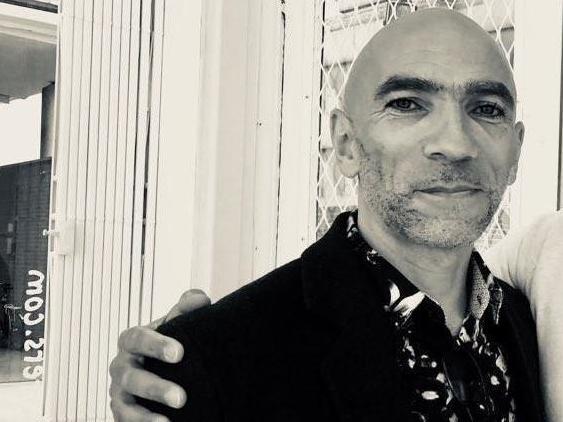A white artistic director pretended to be black – it would be laughable if the consequences weren’t so damaging
Not only has Anthony ‘Ekundayo’ Lennon chosen to wear black identity like a costume, he has actively chosen to take up space and pilfer resources that were never meant for him


Your support helps us to tell the story
From reproductive rights to climate change to Big Tech, The Independent is on the ground when the story is developing. Whether it's investigating the financials of Elon Musk's pro-Trump PAC or producing our latest documentary, 'The A Word', which shines a light on the American women fighting for reproductive rights, we know how important it is to parse out the facts from the messaging.
At such a critical moment in US history, we need reporters on the ground. Your donation allows us to keep sending journalists to speak to both sides of the story.
The Independent is trusted by Americans across the entire political spectrum. And unlike many other quality news outlets, we choose not to lock Americans out of our reporting and analysis with paywalls. We believe quality journalism should be available to everyone, paid for by those who can afford it.
Your support makes all the difference.It has emerged that an artistic director at one of the UK’s few black-led theatres has been masquerading as black. Anthony Ekundayo Lennon describes himself as an “African born again” and stated in 2012 that “although I’m white, with white parents, I have gone through the struggles of a black man, a black actor”.
Not only has Lennon enjoyed a wide sphere of influence as the artistic director of a black-led theatre company in east London, but last year, he was one of a number of recipients who shared a £406,000 award from Arts Council England as part of a residential traineeship – crucial funding dedicated to artists of colour
According to The Stage, people from Black, Asian and Minority Ethnic (Bame) backgrounds made up just 8 per cent of chief executives, 10 per cent of artistic directors and 10 per cent of chairs in 2016-17. This means that an overwhelming majority of the gatekeepers and decisions makers in the theatre industry – including Lennon – are white. This is why the funding that Lennon received, specifically meant for the development of theatre practitioners of colour, is even more of a kick in the teeth.
With echoes of the Rachel Dolezal story – the American woman who purposefully misrepresented herself as black and became a chapter president for the National Association for the Advancement of Colored People – Lennon’s belief in his so-called “blackness” is so brazen it could only be true. In fact, many of these tales of people claiming blackness and “transracial” identity would be hilarious if the joke wasn’t at the expense of black people.
In a similar vein to other examples of white people wrongly assuming that being black is as easy as verbally claiming it, Lennon’s flirtation with a new racial identity came about not long after his acting career as a self-professed white man, in predominantly white spaces, proved unsuccessful. It all changed when he decided to choose a name for himself from an African book – leaving Anthony David Lennon behind and stepped into his new role as Anthony “Taharka Ekundayo” Lennon. In a book called Photo ID, he wrote: “I was at a stage in my life where to address me as Anthony Lennon did not fulfil me; it didn’t seem to allow me to express myself as I saw fit.”
However, no matter the earnestness behind his claims of being “African born again”, as though it is somehow comparable to those who refer to themselves as born-again Christians, this isn’t how race works at all.
You don’t get to pick and discard which signifiers of blackness you’re going to wear each day. Choosing when to don a cape of blackness is a luxury that black people do not have. For Lennon to reduce blackness to feeling like he has experienced the hardships of a black man is reductive and insulting. It also diminishes the very wide and rich representations of blackness, as there is no one way to be black.
Yes, it’s a shame that Lennon’s pigmentation led people to believe that he was mixed race and may have been on the receiving end of jibes as a result, but you would hope that experiences like that would cause a person to have more empathy for people who are actually black and cannot escape this kind of discrimination. The leap to claiming blackness for himself is almost breathtaking.
Not only has Lennon chosen to wear black identity like a costume, he has actively chosen to take up space and pilfer resources that were never meant for him. He has held a sphere of influence, making the decisions that affect the lives and careers of black theatre creatives without having any lived experience to refer to. To actively claim space that isn’t yours and purposefully misrepresent yourself goes beyond ignorance – it’s entitlement. It’s deciding that this identity and culture is yours for the taking, no matter who it hurts.
Lennon and all those who have enabled this charade must be held accountable because this issue goes beyond this one individual. This will also no doubt provide those who are against Bame funding or specific schemes for black and brown people with ammunition with which to attempt to poke holes in their importance.
Lennon’s actions have taken away opportunities from black artists and creatives – unlike him, they do not get to shirk their identities when it suits them.
Join our commenting forum
Join thought-provoking conversations, follow other Independent readers and see their replies
Comments